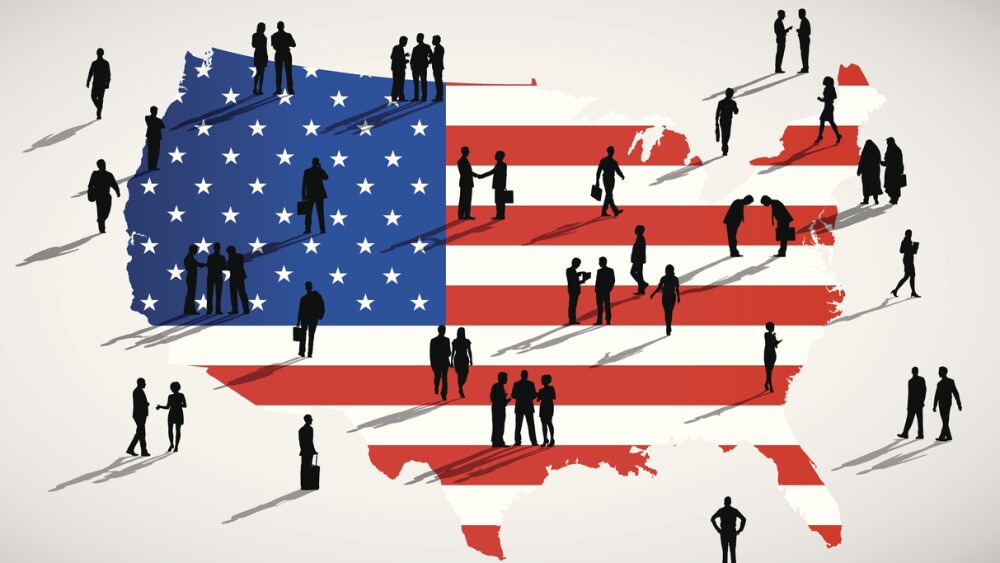When hiring job candidates to work on cell and gene therapies, companies look for more than just technical skills. Talent acquisition executives from Bristol Myers Squibb and Intellia Therapeutics offer an inside look at what they want in an employee.
With the cell and gene therapy sector firmly established and Big Pharma’s interest in it growing, biopharma professionals who want to work in that space can apply to a variety of companies. But what do pharmas and biotechs look for in job candidates? And how can candidates who don’t have the right skills or experience in the sector break into it?
To explore the skills and qualities that interest companies working in cell and gene therapy, BioSpace spoke to talent acquisition executives at Bristol Myers Squibb and Intellia Therapeutics.
Hard and Soft Skills Matter at BMS
At Bristol Myers Squibb, over 4,000 employees work on cell therapies, according to Céline Raffray, vice president of talent acquisition at the New Jersey–based global biopharma. She noted that BMS is the only company with two approved CAR T cell therapies with two distinct targets and was the first to launch a cell therapy for relapsed/refractory multiple myeloma.
While BMS’ cell therapy work initially focused on hematological cancers, Raffray told BioSpace, the business has been expanding its pipeline to areas including autoimmune diseases and solid tumors.
“Our vision for the future is one in which hundreds of thousands of patients are able to access the transformative potential of cell therapy,” she said.
When it comes to the employees working on these cell therapies, Raffray said BMS is looking for people with:
- Digital and automation skillsets, particularly in end-to-end manufacturing process design, development and operations.
- Operational excellence skillsets that demonstrate a disciplined approach to quality, reliability and reducing deviations.
- Global medical capabilities, especially as BMS continues to expand its commercial footprint around the world.
Soft skills are also important, according to Raffray.
“On the soft-skill side, it is really about agility, resilience, problem solving, sense of urgency collaboration and communication,” she said.
Using AI to find the right people
Because cell therapy skillsets are highly niche, identifying talent in this space requires a differentiated approach, Raffray said. To that end, BMS uses its own AI talent platform, MyGrowth. The platform helps the company identify and hire internal and external talent with a skills-based approach.
“This means we are focusing on a comprehensive review of talent, one focused beyond the traditional approaches of making talent interview and hiring decisions solely based on education, experience and credentials,” Raffray said.
As a result of using MyGrowth, BMS has seen a noticeable reduction in hiring times and quantifiable improvement in its ability to attract talent to roles, according to Raffray.
Laying the foundation for a cell and gene therapy job
Biopharma professionals who don’t yet have the right skills for cell and gene therapy jobs should focus on networking, according to Raffray.
“Join cell therapy groups on LinkedIn or on similar platforms, go to conferences, connect with folks on LinkedIn,” she said. “You never know where those connections will take you.”
Raffray also recommended working in the biologics space, noting that biopharma professionals who spend time there can learn a lot of the foundational scientific skillsets that transfer well to cell and gene therapy, such as cell culture, aseptic technique, molecular biology and viral vector development.
Last, Raffray recommended checking out learning organizations that offer cell therapy courses to better understand the sector’s foundations.
Higher learning institutions that offer such courses include Drexel University, where recent college graduates and active professionals can earn a Master of Science in biomedicine and cell and gene therapy. Drexel also has a post-baccalaureate certificate program in regulatory affairs for cell and gene therapy.
CRISPR Experience Isn’t the Only Consideration at Intellia
At Intellia, a clinical-stage gene editing company, there are about 520 employees, according to Shaun Vigeant, vice president of talent acquisition at the Cambridge, Massachusetts–based biotech. Intellia’s pipeline includes in vivo and ex vivo CRISPR-based therapies. The company recently released promising Phase I data for its investigational gene editor nexiguran ziclumeran, noting biomarker improvements in patients with transthyretin amyloidosis.
Regarding the importance of Intellia’s work in cell and gene therapy, Vigeant told BioSpace, “If you think about the science that we’re doing in terms of the potential impact it’s going to have on patients that are living with severe or life-threatening disease, it’s a truly historic and game-breaking type of science because the potential that we’re talking about is a single infusion that could potentially lead to symptom improvement and eradication of a disease.”
While Intellia works on CRISPR-based therapies, Vigeant said the company doesn’t necessarily look for people who have CRISPR experience. However, he noted, it’s always appealing to talk to job candidates who’ve worked in gene therapy because a lot of the experience that comes with one-time therapies or genetic-based treatments can be helpful.
Looking beyond industry-specific technical skills
Noting that the technical skills Intellia seeks vary by role, Vigeant highlighted the importance of skills that translate across positions, such as project leadership and project management. The company needs people who can multitask, lead projects and drive those projects through completion, he said.
Soft skills are also important, especially communication. Vigeant noted that during the interview process, anyone coming in as a scientist or greater does a seminar, as Intellia wants employees who can articulate the work they’re doing and communicate it broadly.
Overall, Intellia wants people who are team players, according to Vigeant.
“We certainly are a company full of people that are roll-up-your sleeves type of workers, putting your hard hat on and getting in the trenches,” he said. “We really make sure that everybody we hire, even if they come from a large company and they had a massive team, that they’re open to really doing a little bit of everything. We’re just a scrappy organization from that perspective.”
Transitioning to cell and gene therapy from unrelated industries
For scientists working in unrelated industries who want to enter the cell and gene therapy space, Vigeant recommended against blanket applying to jobs. He advised first researching the industry and then contacting people on LinkedIn who work at companies of interest.
“Say, ‘I’ve never worked as a scientist at a cell and gene company, but I’m really interested in getting in there,’” Vigeant said. “‘Can I talk to you for a few minutes about your experience? I just want to understand is it going to be a huge mountain for me to climb over? Is it really not going to be as daunting as I think?’”
Getting that information and networking can help candidates with the job application and interview process, Vigeant noted.
“I would do everything I can to prepare and meet people and talk to people to try to get a leg up, and then sell yourself and just get the opportunity,” he said.
Interested in more career insights? Subscribe to Career Insider to receive our quarterly life sciences job market reports, career advice and more.






